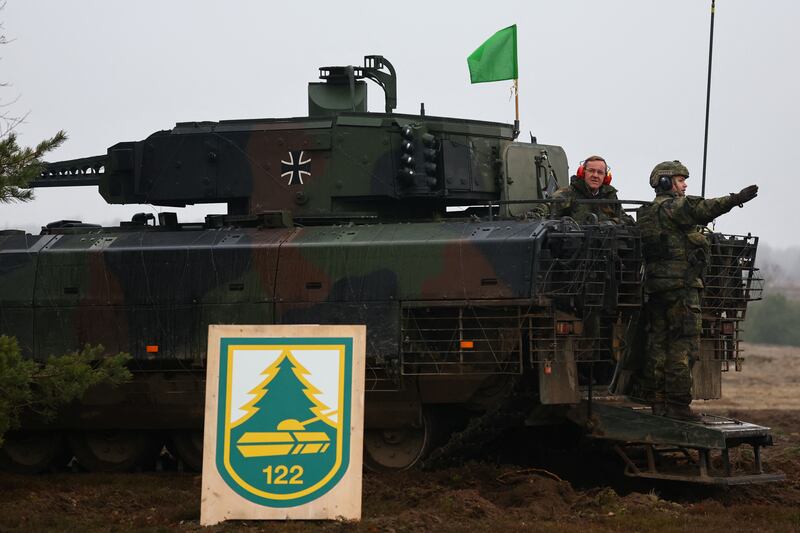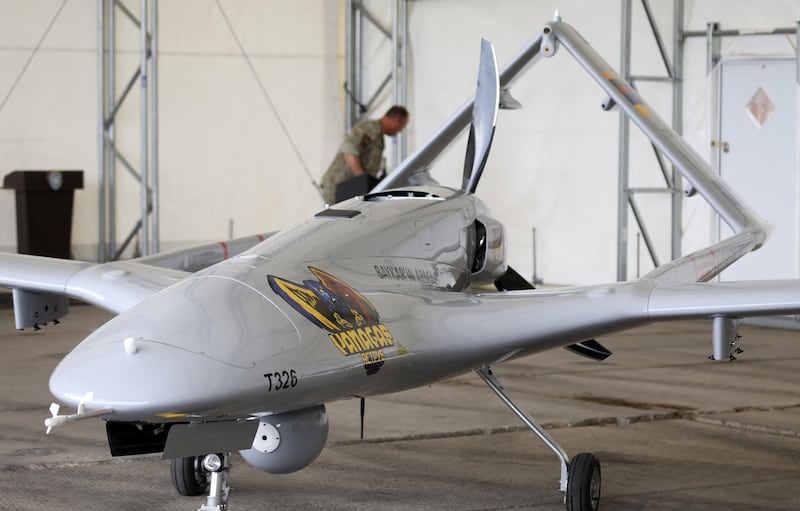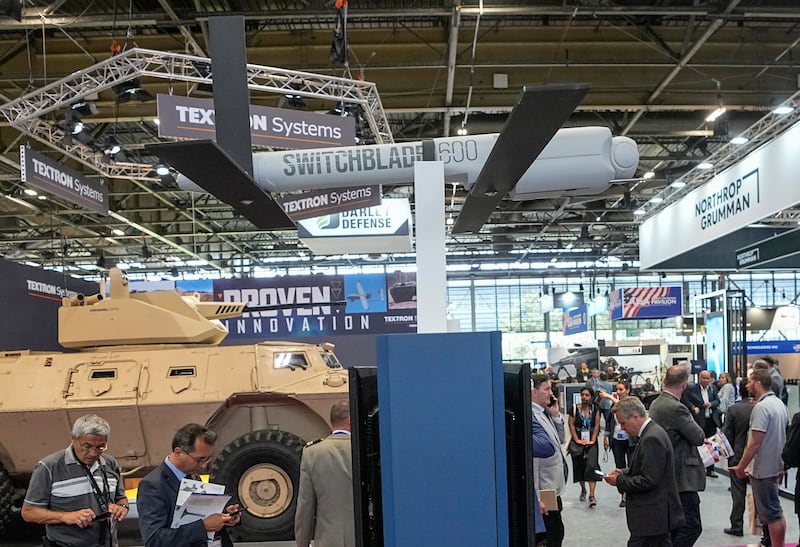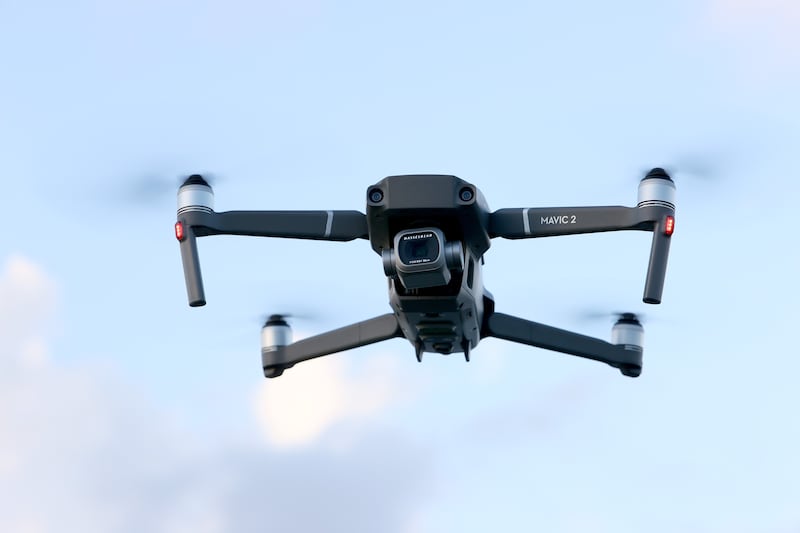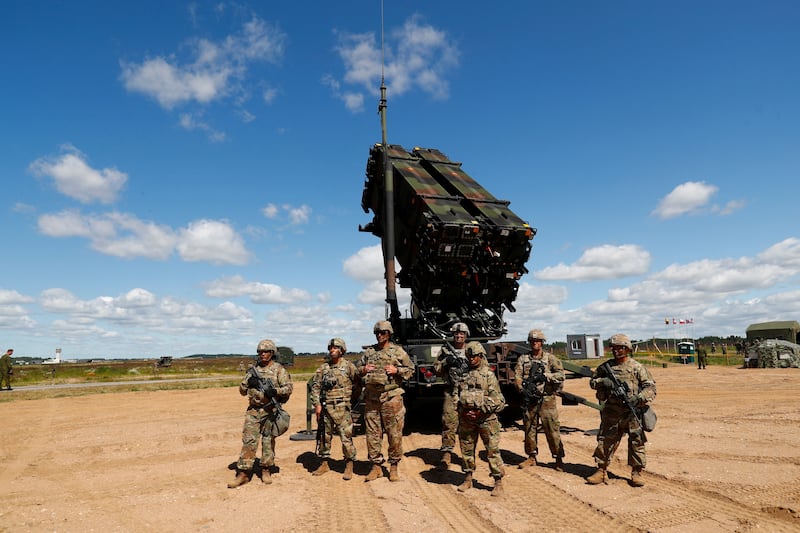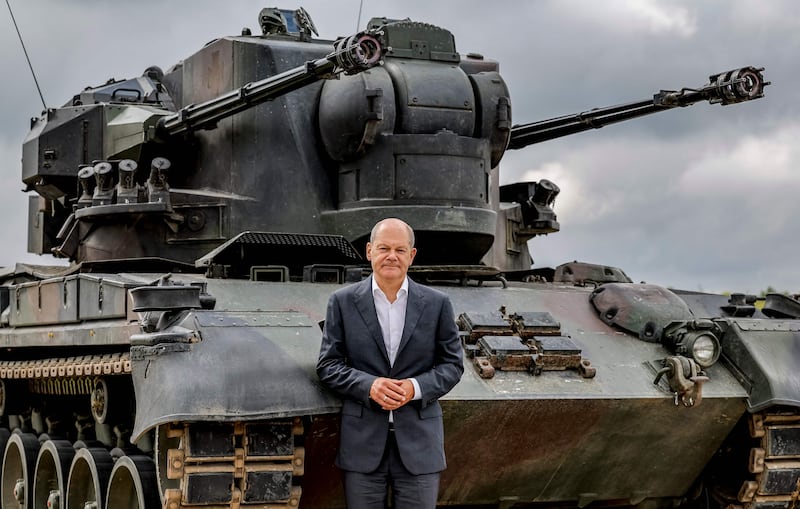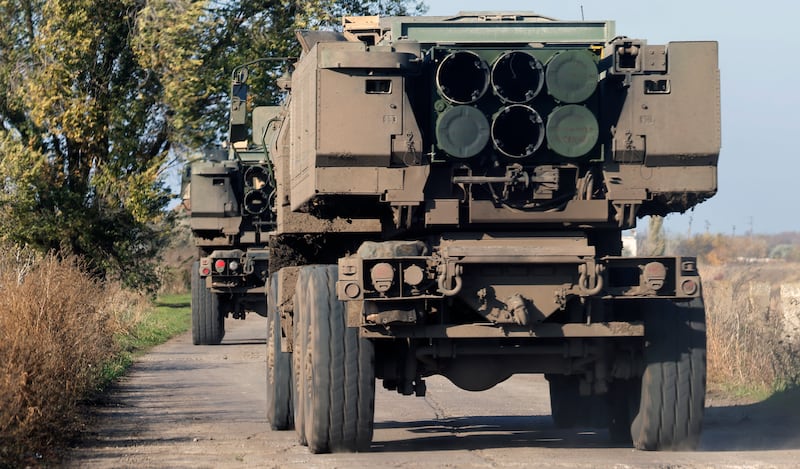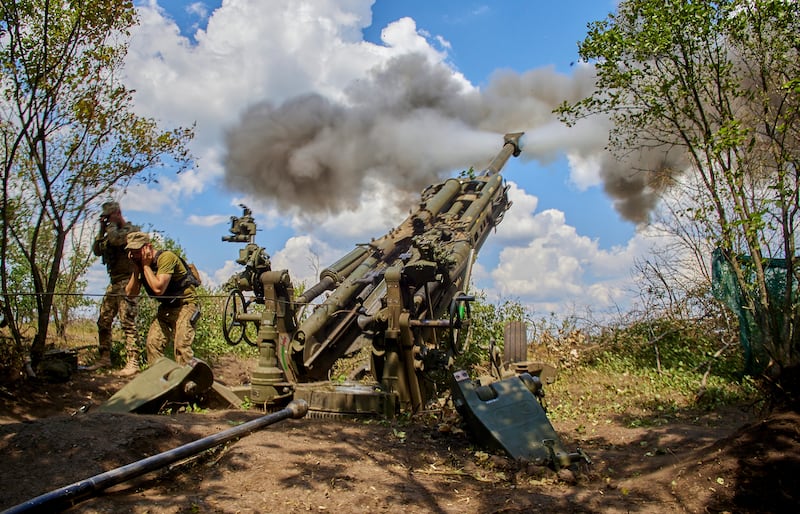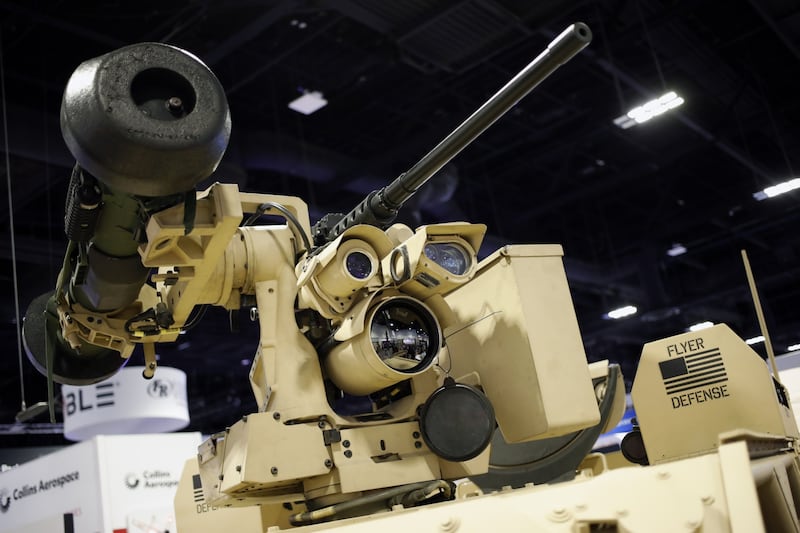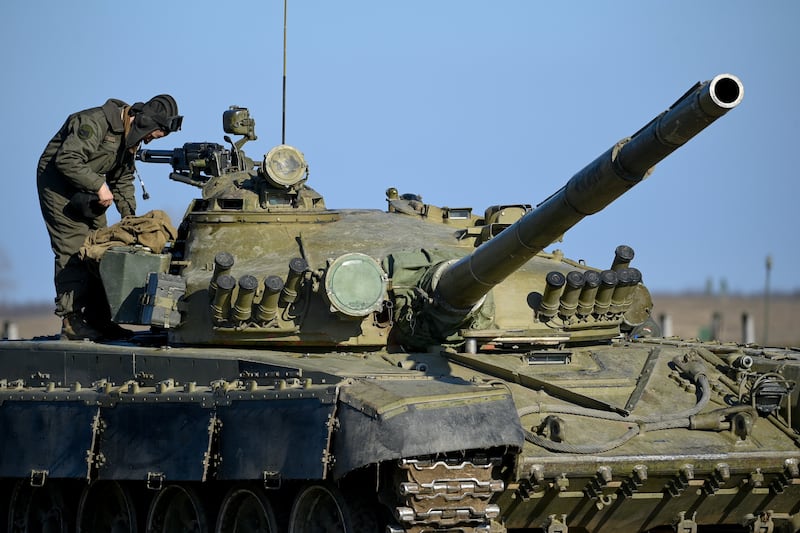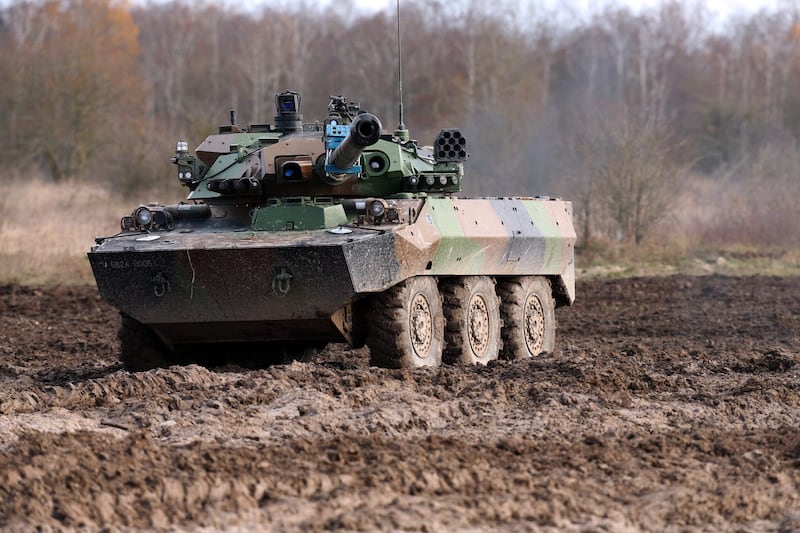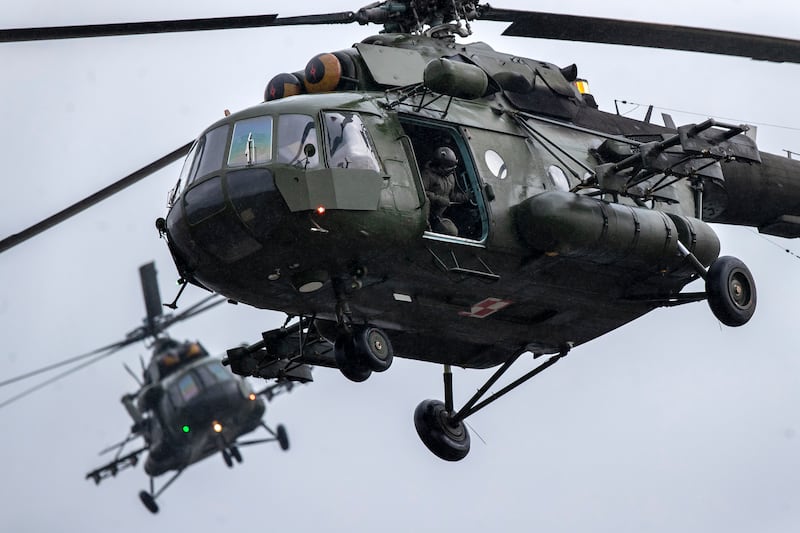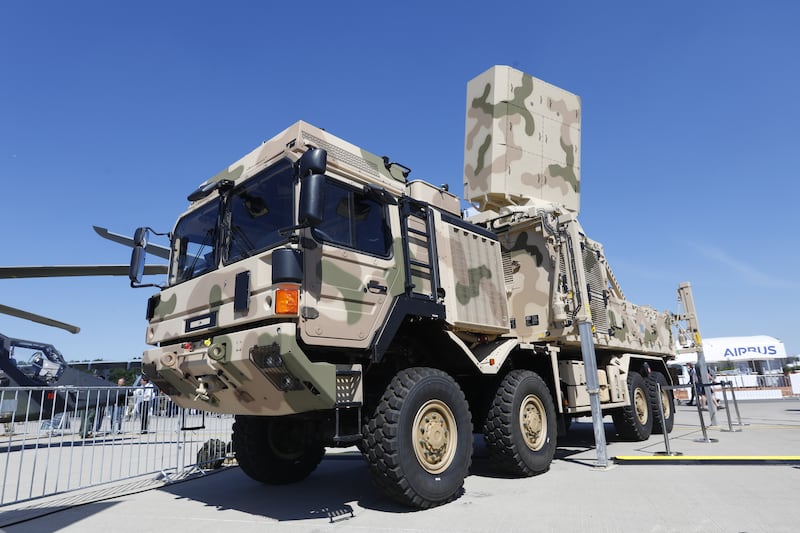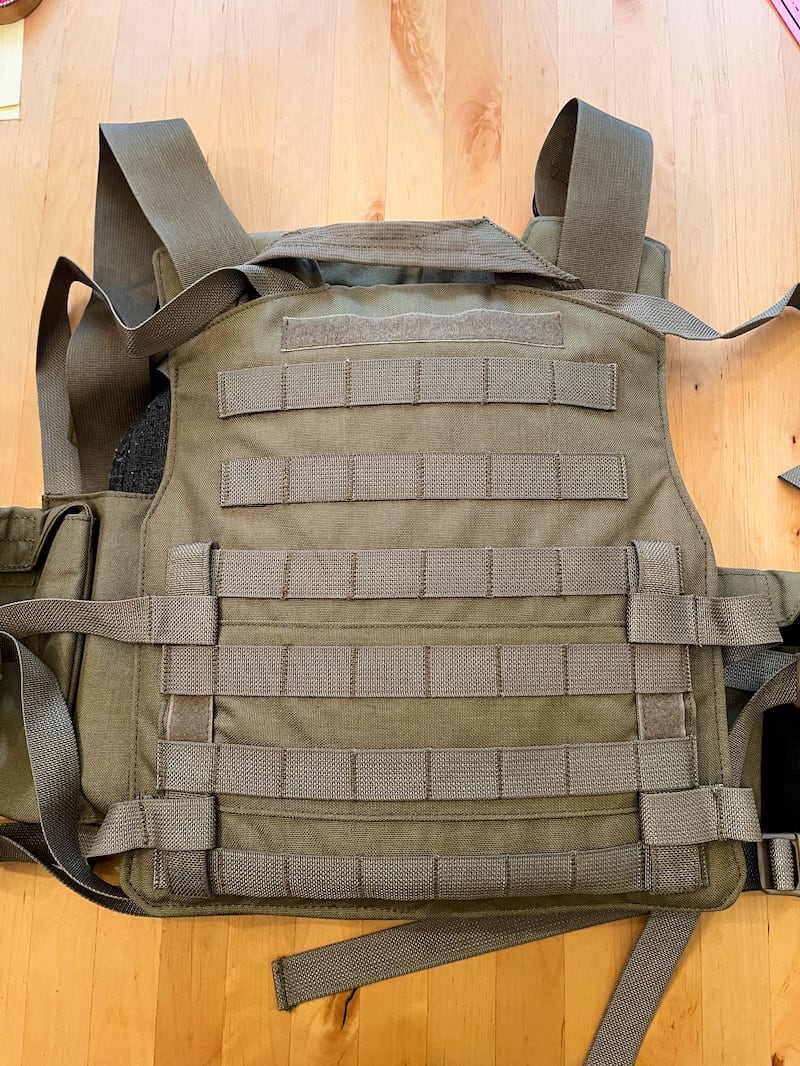Ukrainian President Volodymyr Zelenskyy on Wednesday said he had spoken to Nato Secretary General Jens Stoltenberg and called for supplies of long-range missiles and aircraft to add to the advanced battle tanks from the US and Germany.
"The key now is speed and volumes. Speed in training our forces, speed in supplying tanks to Ukraine. The numbers in tank support," Mr Zelenskyy said.
"We must form such a tank force, such a freedom force that after it strikes, tyranny will never again rise up."
Mr Zelenskyy said that "progress must be made in other aspects of our defence co-operation", namely long-range missiles, artillery and aircraft for Ukraine. Sirens sounded across the country early on Thursday as officials reported a fresh round of missile and drone attacks.
"This is a dream. And it's a task. An important task for all of us," Mr Zelenskyy said.
Germany on Wednesday said it would send Leopard battle tanks to Ukraine, relenting after huge pressure from Kyiv, Nato allies and politicians in Berlin.
Chancellor Olaf Scholz’s decision also clears the way for other countries such as Poland to send their German-made Leopards to Ukraine.
Germany will provide an initial 14 Leopard 2A6 tanks, as well as ammunition, and training will begin soon, Mr Scholz told his Cabinet.
The aim is to form two Ukrainian Leopard battalions with the help of allied stocks.
“Germany will always be at the forefront of supporting Ukraine,” said Mr Scholz.
“We're talking about very effective weapons systems and it's right that we never roll out these weapons alone, but always in close co-operation.”
The US also announced on Wednesday that is sending 31 of its sophisticated M1 Abrams tanks to Ukraine after months of diplomatic and defence talks.
“The United States and Europe are fully united,” said US President Joe Biden said in White House remarks about the Abrams shipments. He also praised enhanced support for Kyiv across Europe.
He said Russian President Vladimir “Putin expected Europe and the United States to weaken our resolve. He expected our support for Ukraine to crumble with time. He was wrong.”
A senior US administration official said that Abrams tanks are the “best in the world.”
“This is a tremendous new capability that Ukraine will be getting to boost its long-term defences,” the official said.
The tank system will improve Ukraine's manoeuvring capabilities and give it “the ability to fight effectively in open terrain”, another administration official said.
Mr Zelenskyy said he was “sincerely grateful” for Germany's decision.
Mr Scholz had tested allies' patience by prevaricating over the Leopards, saying he did not want to escalate the conflict.
A sense of unease at Germany’s tanks fighting Russia for the first time since 1945 has also weighed on the debate.
But he came under increased pressure after France and Britain announced they were sending tanks, and the US Defence Secretary Lloyd Austin went to Berlin to lobby personally for the use of the Leopards.
“The decision to send Leopards to Ukraine is a big step towards stopping Russia. Together we are stronger,” said Polish Prime Minister Mateusz Morawiecki.
Allies with Leopards in their arsenals will receive the necessary re-export permission from Berlin, Mr Scholz said, after Poland hinted it might go ahead anyway if he continued to delay.
Finland, Denmark, Spain and the Netherlands are among others who have the German-made tanks.
German Defence Minister Boris Pistorius said it was a “historic decision” but “no cause for hallelujah”. He said the first tanks could arrive in three months.
Mr Stoltenberg said the tanks could help Ukraine win the war.
Russia accused Germany of escalating the conflict and abandoning its historical debt to the dead of the Second World War.
“These tanks will burn down just like all the other ones,” Kremlin spokesman Dmitry Peskov said.
Hamish de Bretton-Gordon, a former commander of Britain's Royal Tank Regiment, told The National the Leopards would be a “game changer” that could help Ukraine recapture the Donbas or Crimea.
“These western tanks have the ability to manoeuvre rapidly at night and the ability to fire lots of highly accurate rounds," he said.
"Each tank is equipped with 50 rounds, compared to a single infantryman who can carry just one NLAW anti-tank weapon."
Ukraine’s ambassador to the UAE, Senik Dmytro, said the country “has to reach military parity to discourage Russia from continuing its military aggression”.
“Ukraine has proved to be a brave nation ready to fight for their independence and right to live peacefully, as many other nations in the world, but we do like military equipment to defend our land,” he said.
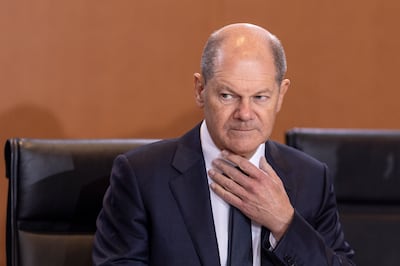
Britain and France welcomed the move. Western officials believe the Leopards, in service since the 1970s, could help Ukraine to regain territory and defend itself against an expected offensive by Russia in the spring.
Ukraine, which welcomed what it called a first step, has said it wants hundreds of western armoured vehicles to form a “tank coalition”. A battalion normally consists of several dozen tanks.
The substantial stocks of Leopards across Europe “enable the establishment of a coherent heavy armour force around Leopard 2, which the delivery of 14 British Challenger [tanks] or French AMX-10 RC light tanks could not offer,” said Camille Grand, a former Nato assistant secretary general.
Mr Scholz defended the delay over the Leopards by saying Germany would only act in concert with allies and was already the biggest military donor to Ukraine, after the US and UK.
He said he had spoken to Mr Zelenskyy, who turned 45 on Wednesday, to discuss the latest support.
Drones and weapons supplied to Ukraine — in pictures
Alexander Mueller, an MP in Mr Scholz’s coalition, said a mixture of domestic and international pressure had ultimately forced the Chancellor’s hand.
“Our Chancellor was quite reluctant, hesitating, but I’m glad that he finally changed his mind,” Mr Mueller told BBC Radio 4 before the announcement.
“I don’t think he was dodging anybody. He needed his time to be persuaded but I’m really glad now that the traffic lights are green for the delivery of Leopard 2.”
British Prime Minister Rishi Sunak held talks with world leaders on Wednesday, including Mr Biden, Mr Scholz amd French President Emmanuel Macron.
Mr Sunak also spoke to Italian Prime Minister Giorgia Meloni.
“The prime minister welcomed the decisions by allies to announce major battle tank contributions and updated on the UK’s unwavering support for Ukraine, including his decision to donate a squadron of Challenger 2 tanks last week,” a Downing Street spokeswoman said.
“This decisive, collective action would be a catalyst for other countries to follow suit, the prime minister added.
“The prime minister said it was now clear Russia was on the back foot and there was a window for international partners to accelerate efforts to secure lasting peace for Ukraine.
“He called on allies to intensify their support in the coming weeks and months."
The tank announcements came as Ukraine on Wednesday conceded its forces had left the contested town of Soledar. Russia said its forces were advancing in the region.
Mr Zelenskyy, who recently reshuffled his top officials in an anti-corruption drive, said would root out “internal issues”, and said in an overnight address that Russia was “preparing for a new wave of aggression”.
But UK defence officials said Russia's most modern T-14 tank had been rushed to Ukraine before it was operational.
“Deployed Russian forces were reluctant to accept the first tranche of T-14s allocated to them because the vehicles were in such poor condition,” Britain's Ministry of Defence said.
